Subject Leader & Head of Faculty: Humanities
Mr M Jayasuriya– mjayasuriya@oriel.w-sussex.sch.uk
Teaching Staff
Mr J Smith – jsmith4@oriel.w-sussex.sch.uk
Mr L Hope – lhope@oriel.w-sussex.sch.uk
Mrs M Chandler – mchandler@oriel.w-sussex.sch.uk

“History belongs above all to the man…who needs models, teachers, comforters and cannot find them among his contemporaries” – Friedrich Nietzsche
Curriculum Intent
At Oriel, our History curriculum is designed to inspire lifelong learning and empower students to excel. We focus on students’ individual needs, providing a comprehensive understanding of Britain’s past and the wider world. Our goal is to develop confident historians who can think critically and communicate effectively.
In line with our whole-school Curriculum Intent, our subject curriculum aims are:
- Aim 1: Foster Successful Historical Learning
- Aim 2: Ensure Seamless Transition and Preparedness
- Aim 3: Highlight the Relevance of History Inside and Outside the Classroom
- Aim 4: Support and Challenge All Students to Achieve Success
- Aim 5: Inspire Passion for History
Core Curriculum Frameworks
Our curriculum integrates chronological, substantive, and disciplinary concepts to help students build a comprehensive understanding of history. By embedding these concepts, we enable learners to see the connections between events, understand the progression of time, and critically analyse historical sources and narratives.
- Chronological understanding develops students’ ability to sequence events and recognize patterns of change and continuity over time, fostering a clear sense of historical progression.
- Substantive concepts provide a framework for exploring the big ideas that underpin historical study, helping students connect topics, understand complex themes, and engage with the deeper significance of events.
- Disciplinary concepts cultivate critical thinking by teaching students how to analyse sources, evaluate interpretations, and construct evidence-based arguments. Together, these elements empower students to think historically, make connections across time and place, and engage meaningfully with the past.
To support this, we use bespoke visual icons that clearly identify which concept or framework is being tackled in every lesson. This approach benefits all types of learners, providing clarity, aiding memory retention, and ensuring consistent reinforcement of key ideas throughout the curriculum.
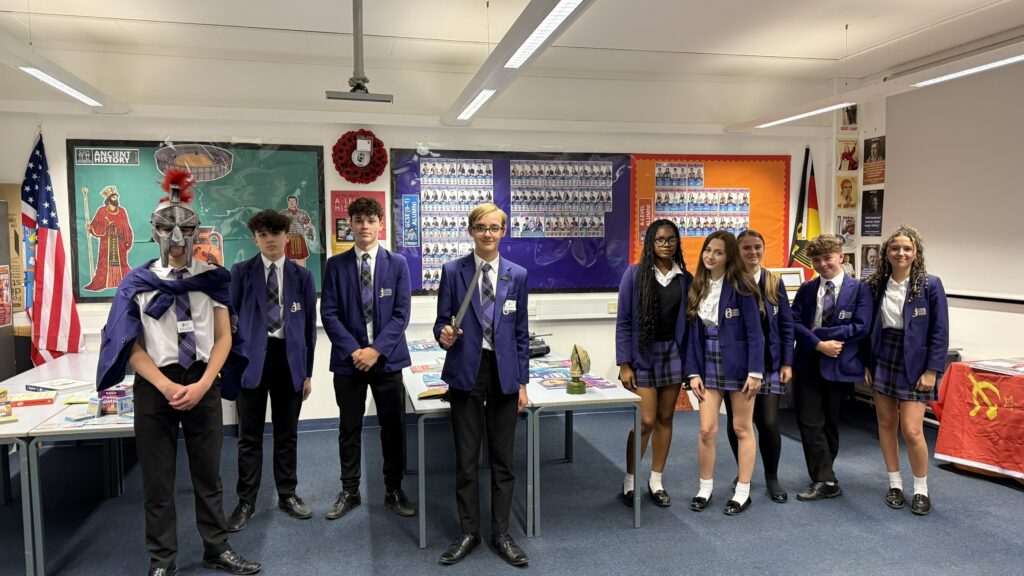
Key Stage 3 Curriculum
The Year 7 History curriculum introduces students to foundational historical concepts and skills, focusing on key political, religious, and social turning points that shaped Medieval Britain and the broader ancient British context. Through thematic studies, students develop critical thinking and analytical skills while exploring topics such as chronology, migration, the Norman Conquest, medieval religion, and power struggles, fostering a deeper appreciation for the complexity of history.
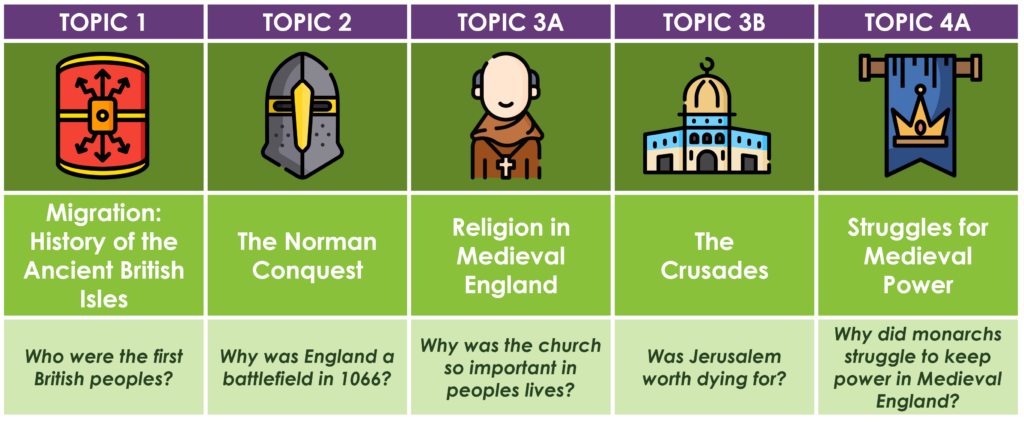
The intent of the Year 8 History curriculum is to deepen students’ understanding of significant religious, political, and social changes in Early Modern Europe and Britain. The curriculum explores the impact of the Tudor Reformation, the Renaissance, the English Civil War, the British Empire, the Transatlantic Slave Trade, and the Industrial Revolution. These topics aim to engage students with the complexities of historical change and continuity, helping them understand how power, ideas, and economic systems shape society.
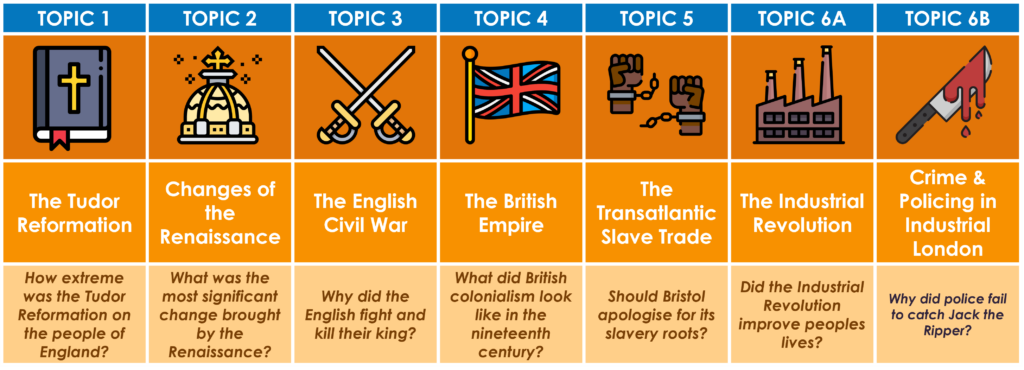
The intent of the Year 9 History curriculum is to provide students with an understanding of the impact of global wars, political ideologies, and social changes in the 20th century. The curriculum covers the First World War, local history studies, the Holocaust, and extreme changes in the 20th century, encouraging students to engage with the causes and consequences of historical events and their ethical implications. These topics aim to develop students’ ability to analyse complex historical issues, understand historical significance, and evaluate primary sources and interpretations.
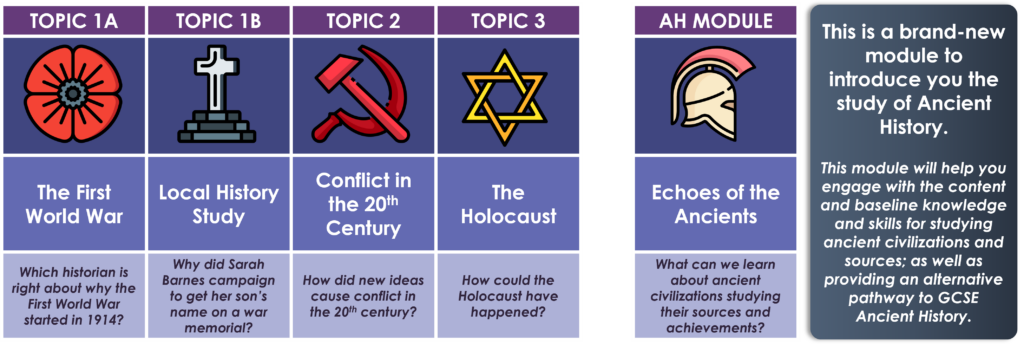
GCSE (9–1) History Curriculum
The intent of the GCSE History curriculum is to provide students with a comprehensive understanding of significant historical periods, events, and themes that have shaped the modern world.
Students will study a broad sweep of medical history from medieval Britain to the present day for their Thematic study; delving deeper into the theme by learning about a specific historic environment – injuries, treatment and the trenches of the British sector of the Western Front, 1914-18.
Students will engage in a British depth study focusing on some of the key individuals, events and situations that helped to shape Henry VIII’s Britain, 1509-1540.
With the Period study, students have the change to study the ideologies and political developments that have shaped the world we live in today as a result of the Cold War, 1941-1991.
Students will also learn about another nation’s history in depth, Germany; with the Modern Depth study exploring the complexity of the Weimar Republic and development of the Nazi regime from 1918-39.
Our exam board for GCSE (9–1) is Pearson Edexcel.
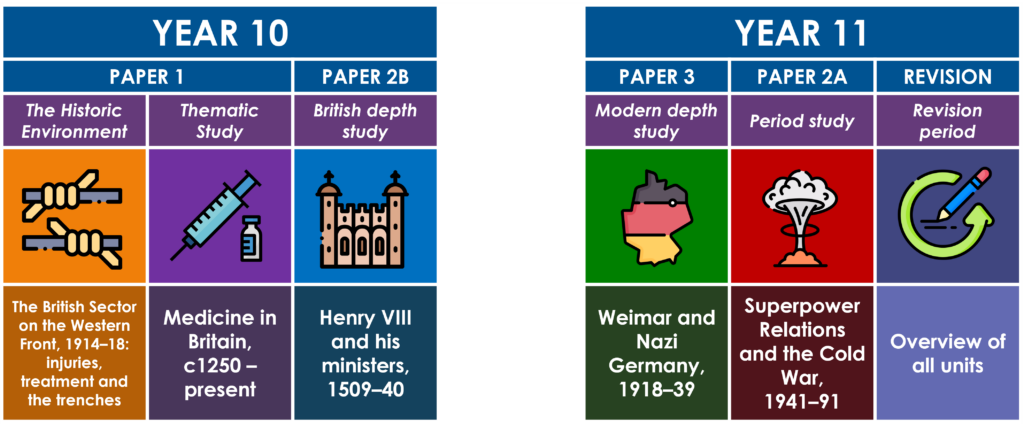
A-level History Curriculum
Our A-Level History curriculum is designed to inspire students to become confident, critical thinkers who can analyse the complexities of the past and its relevance to the present. By exploring significant historical periods and themes, such as Tsarist and Communist Russia and Modern Britain, students develop a deep understanding of change and continuity, cause and consequence, and the construction of historical arguments. Through a balance of breadth and depth studies, independent research, and critical engagement with sources, we aim to equip students with the skills to think and write like historians, preparing them for further education and active, informed citizenship.
The Breadth Paper component looks at change and continuity over one hundred years of Russian history from 1855–1964; exploring the significant developments and historians’ interpretations that brought about the collapse of the Tsarist regime by 1917, to the extreme heights of the Soviet era.
The Depth Paper component will look at the period of major political, economic and social changes of Modern Britain, in depth, from 1951–2007, exploring the interrelationship of a variety of perspectives with reference to contemporary evidence from the period.
The Non-Examined Assessment (coursework) component is a historical investigation which gives students an opportunity to research a topic and to produce an independent piece of extended writing; in this instance on the key political, financial and religious issues that increased tensions towards the outbreak of the English Civil War in 1642.
Our exam board for A Level is AQA.
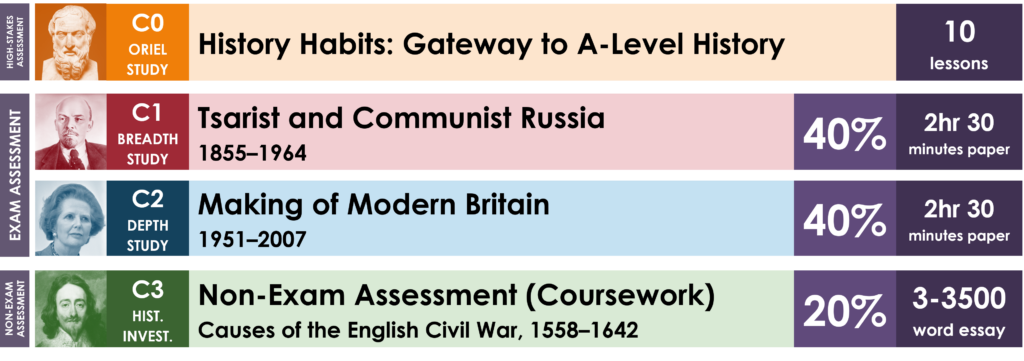
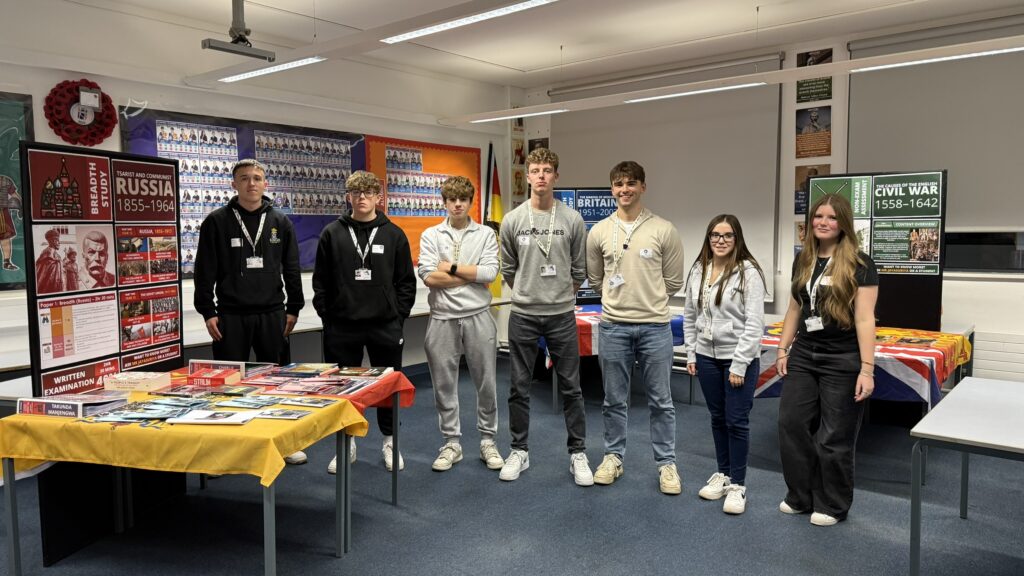
Oriel History Enquiry
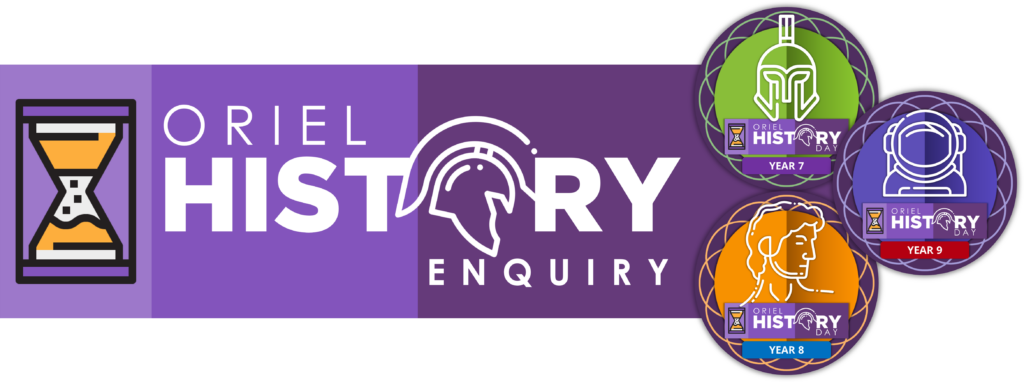
Oriel History Enquiry is a unique enrichment programme and competition for all students in Key Stage 3 History.
Each year group is given a specific historical focus, where they learn to develop skills in historical research and produce a sophisticated piece of work that reflects critical thinking and wider-historical understanding; as well as the ability to present their projects that tap into their most creative strengths. Student winners from each class are entered into a final internal competition in the summer term.
This major super-curriculum programme is a staple highlight for the History department, as well as for the whole-school calendar; showcasing the outstandingly epic and passionate work of our key stage 3 History students. Professor Simon Thompson, from the University of Sussex, observed that ‘the quality of work was breath taking and sets the school apart from any others’. As a department, we are proud to be unique to offer this scheme and opportunity to its students.
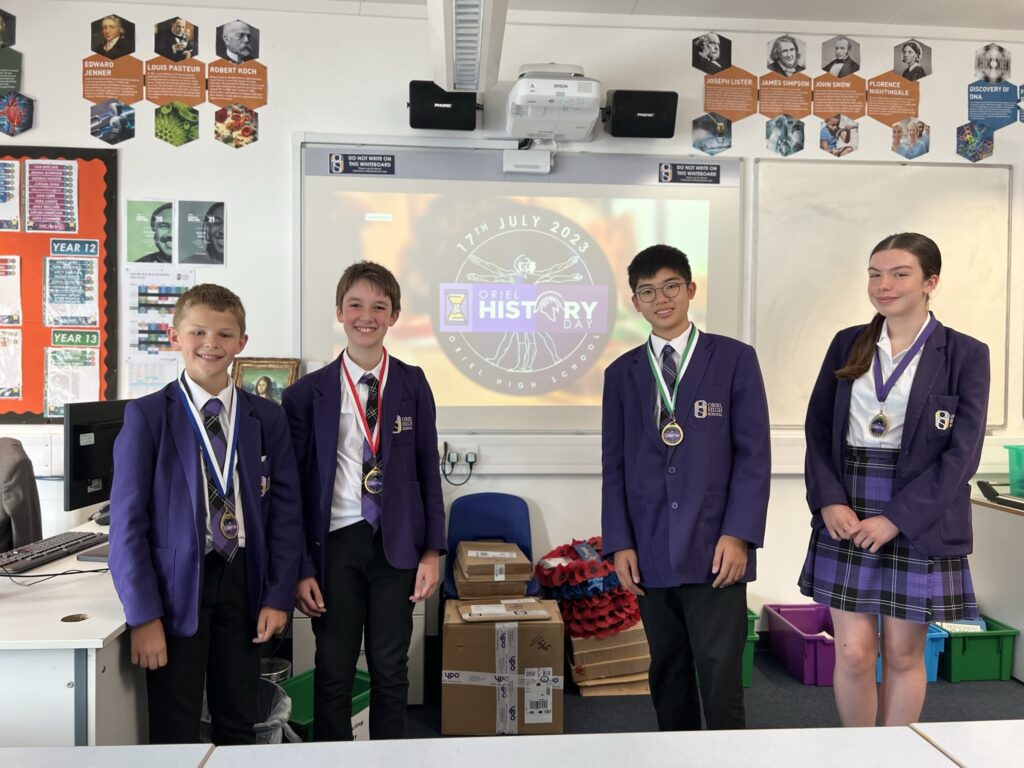
Learning Outside the classroom
History Enrichment
The History Department greatly values the importance of opportunities to provide a sense of History ‘beyond the classroom’, helping our students experience the relevance of our subject beyond the national curriculum.
Day trips and workshops
The History department aims to have a major staple trip/visit for each key stage. The department has run trips to the Tower of London, Imperial War Museum and has had Holocaust survivor testimony visits for Key Stage 3. GCSE students will have the opportunity to go to Hampton Court Palace to support their ongoing learning and revision for their British depth study, as well as an upcoming WW1 Living History workshops for our Year 11s to support their Historic Environment revision. Our Sixth Form learning offers a range of opportunities for students to expand on their curriculum learning by organising a trip to the Houses of Parliament and participating in a day of lectures for Russian History as part of the Education in Action: Russia in Revolution lecture series.
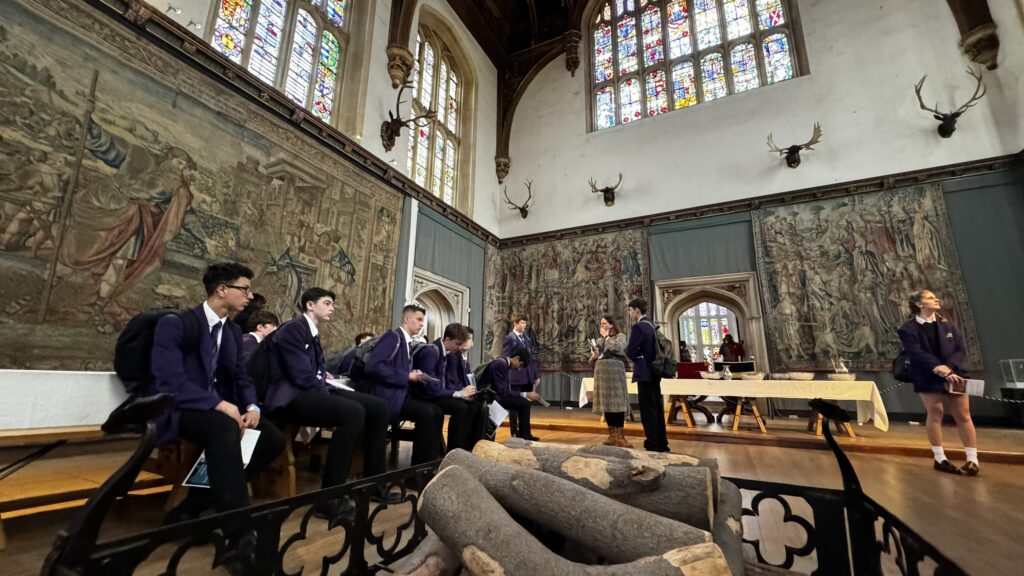
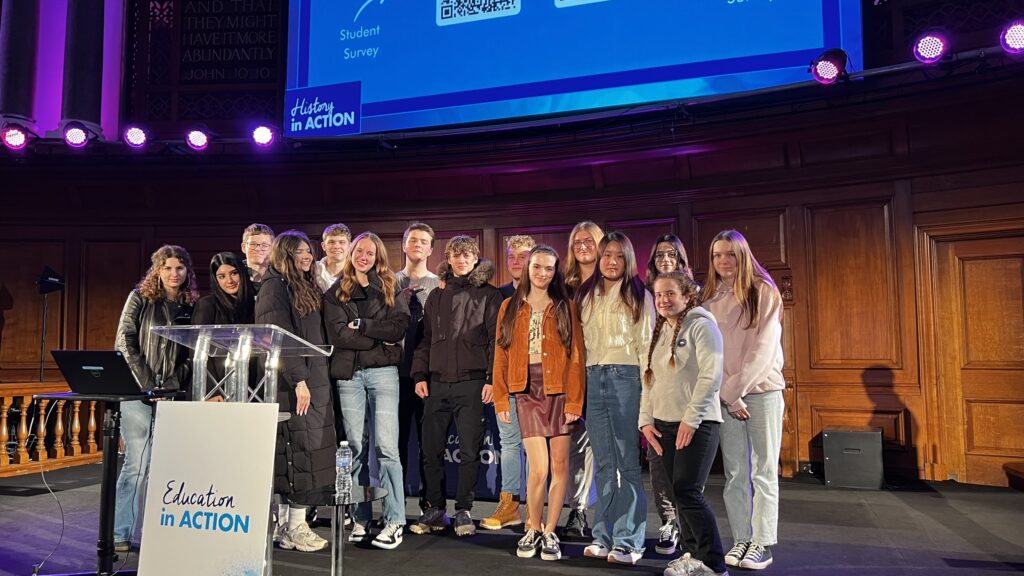
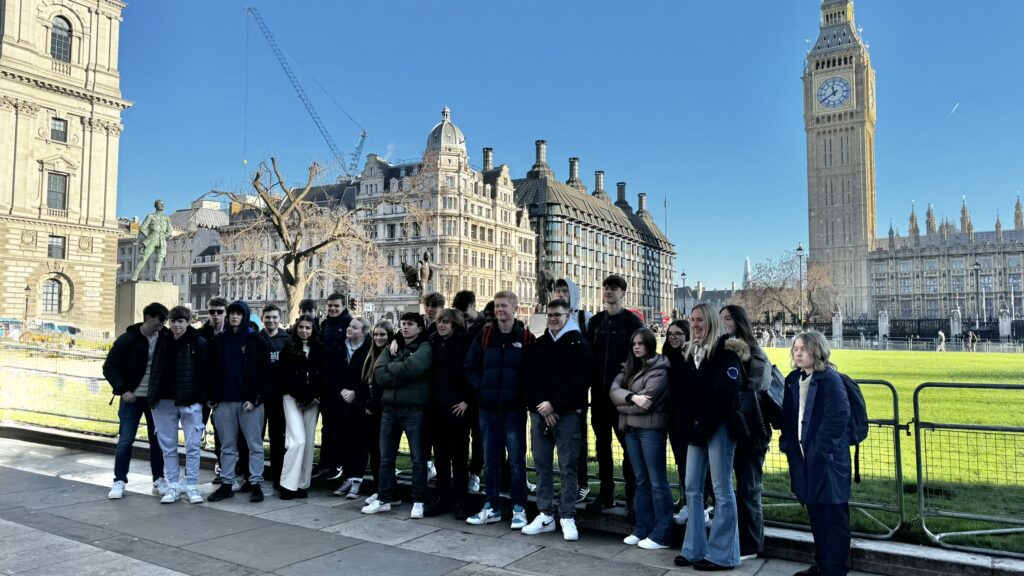
Residential trips
History staff continue to run successful residential trips which help students to truly experience world History at their feet but is also successful in helping students to provided long-lasting memories and relationships with fellow staff and students.
Krakow and Auschwitz (Year 12): This staple Sixth Form Residential trip is of particular interest to students studying subjects such as History, Psychology, Sociology, Law, or Politics, though it is open to all Year 12 students. It provides an opportunity for in-depth learning about the Holocaust, reinforcing the material studied in Year 9 and GCSE about the persecution of minorities in Nazi Germany.
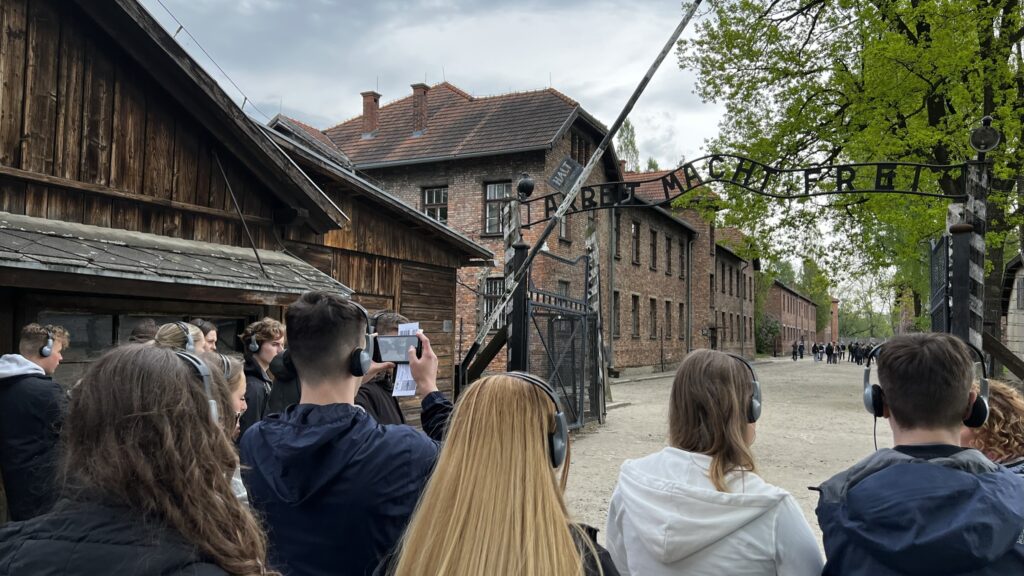
Amsterdam and Munich (Year 13): Why this trip? This brand-new Sixth Form Residential trip for Year 13s – Amsterdam and Munich excursions combine elements of both cultural history and 20th-century events. From the art of Van Gogh to the historic sites tied to WWII and the Holocaust, the itinerary is curated to blend education with enriching experiences.
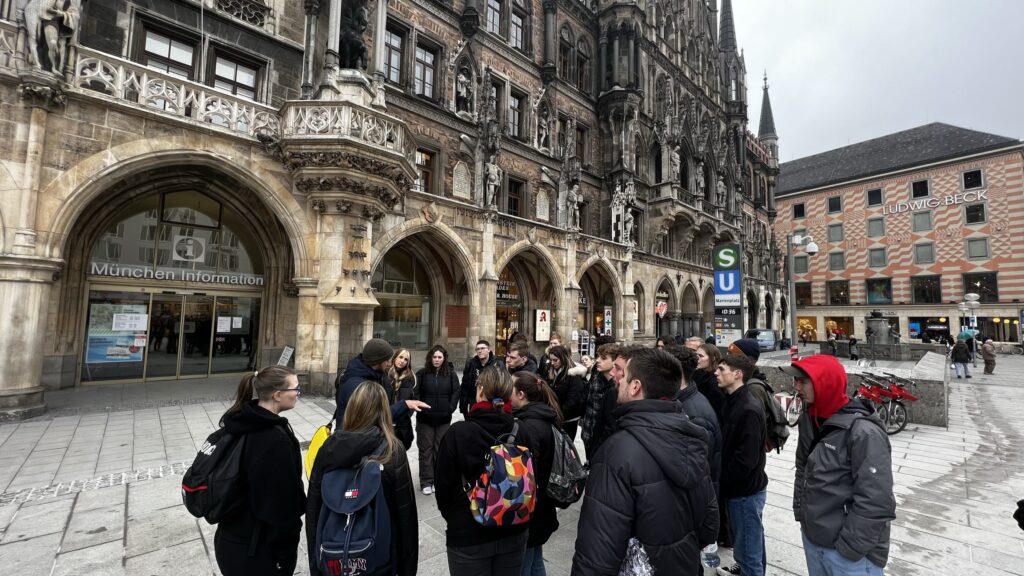
Sixth Form students have previously been offered an epic residential trip to Russia in 2018 and 2020 (tours in both Moscow and St Petersburg). And during Oriel’s Activities Week, we previously ran our staple residential tour for key stage three students to Rome (2019, 2022, 2023 and 2024); allowing students to experience the historical, social and cultural sights Rome has to offer.
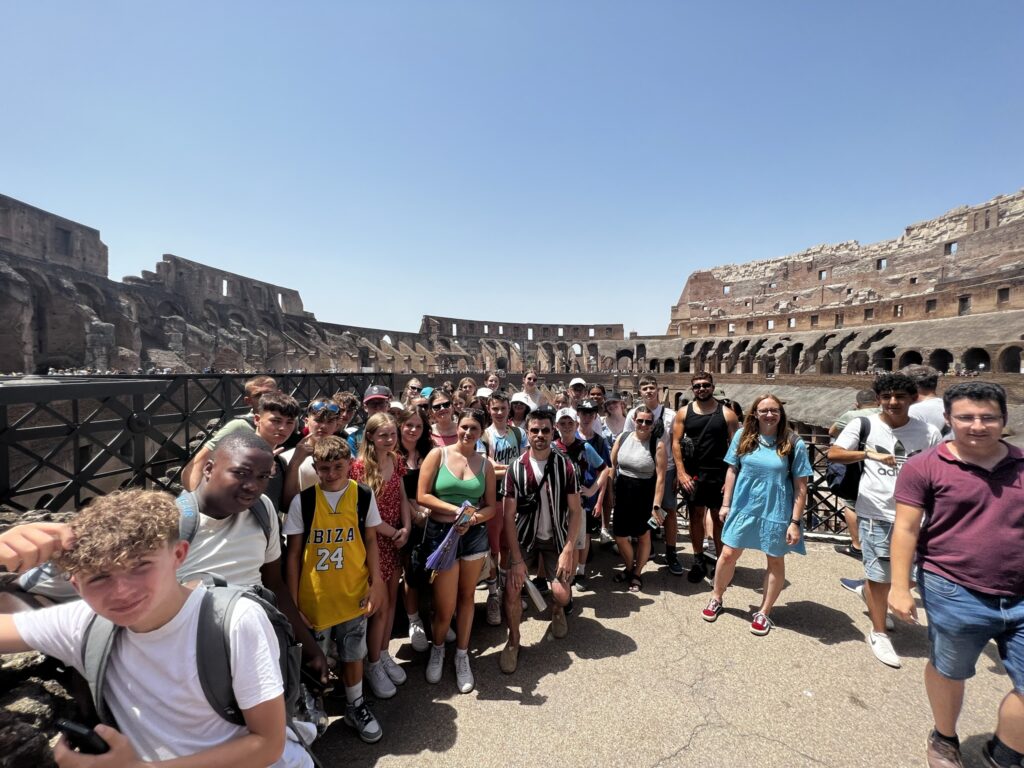
Holocaust Memorial Week
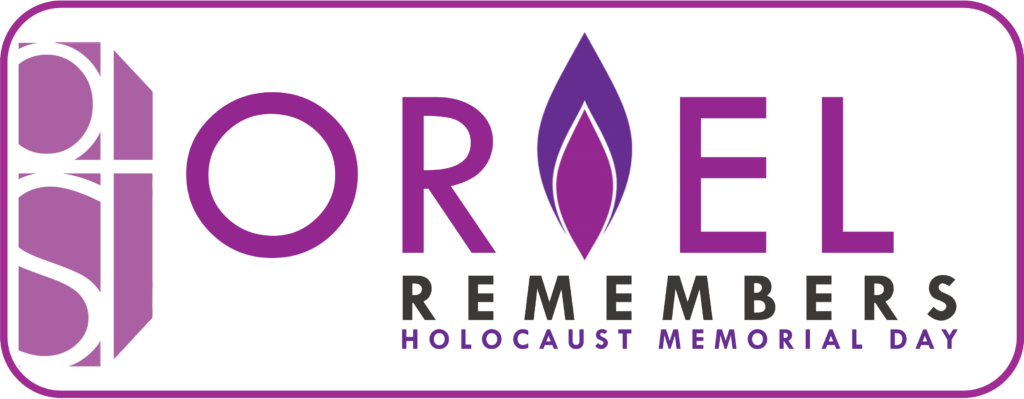
Our school commemorates Holocaust Memorial Day to honour the memory of the millions who suffered during the Holocaust and subsequent genocides, ensuring their stories are never forgotten. By reflecting on the past, we aim to educate students about the dangers of prejudice, discrimination, and hatred, fostering empathy, respect, and a commitment to promoting justice, tolerance and human rights in our community and beyond.








